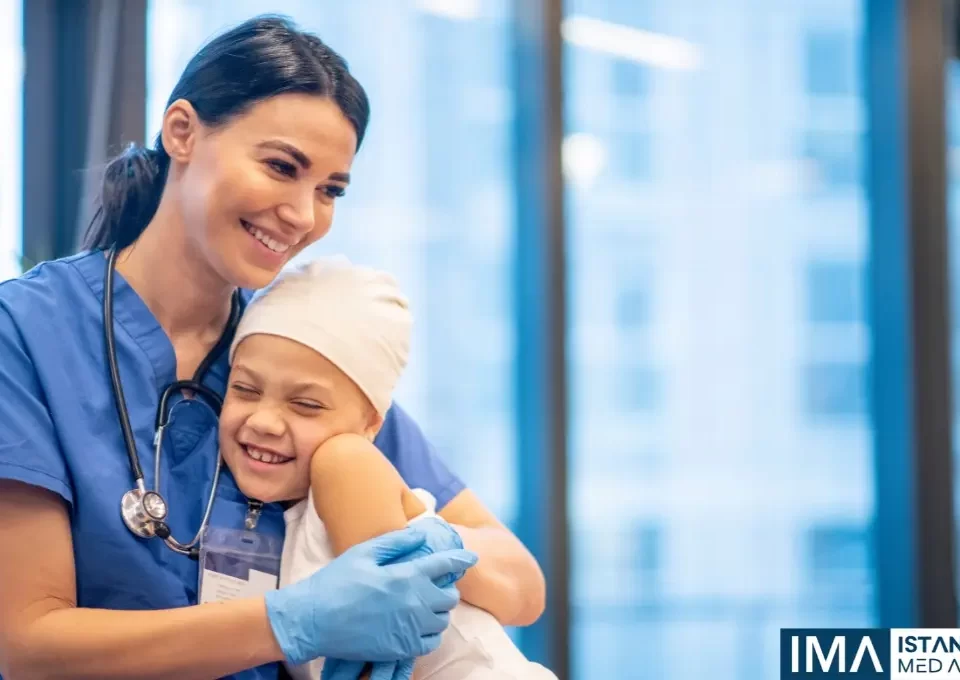Children have unique medical needs that we have to meet to help them grow into healthy adults. As a result, a branch of medicine known as pediatrics provides medical care for children. Under this branch of medicine, we have several specialties. They include pediatric hematology and oncology, which deal with diseases in children.
What are Pediatric Hematology and Oncology?
Pediatric hematology and oncology is a children’s specialty that involves diagnosing and treating children with blood disorders. In addition, it also applies in treating bone marrow failure, cancer, and immune deficiencies. Specialists in this branch have to go to medical school. There, they undergo residency training in treating children. They also require certification before they can practice. Therefore, they are specially trained to make children feel comfortable and relaxed while ensuring that they do not have blood disorders and cancer.
While hematologists are specialists in diagnosing and treating blood disorders, oncologists diagnose and treat cancer. However, a pediatric hematologist-oncologist specializes in diagnosing and treating blood disorders such as sickle cell anemia, hemophilia, bleeding disorders, etc., and cancers such as lymphoma, leukemia, etc.
Common types of blood disorders and cancer in Children
Let us briefly discuss the most familiar type of blood disorder in children. While cancer is more common in people of older ages, children can also develop some types of cancers. They are commonly associated with blood disorders. Examples of these include:
Bone cancer
It occurs when some abnormal cells grow uncontrollably in the bone. The normal bone tissues get faulty and may spread to other body parts. Usually, bone cancers such as osteosarcoma and Ewing’s sarcoma happen in children between 5 and 20years. It is characterized by swelling around the bone, fatigue, weight loss, etc.
Leukemia
Generally, this is the cancer of the white blood cells. It is the most common type of cancer in children. Often occurs when abnormal white blood cells are formed in the bone marrow. They can also cause other healthy cells to be damaged. It exposes a child to infections and other diseases. There are different types of white blood cell cancer, and they can be diagnosed and treated by a specialist. Symptoms of white blood cell cancer include weakness, fever, infections, bone or joint pain, weight loss, etc.
Sickle cell anemia
This type of blood disorder causes the red blood cells to be malformed—usually, the red blood cells are like round discs. In addition, with this blood disorder, the red blood cells look like sickles or a crescent moon. Therefore, this makes them stick together and block blood vessels. In other words, they prevent the easy flow of blood through the body. It often leads to severe pain and damage to body organs. While sickle cell cannot be cured, your specialist can help manage it.
Hemophilia
Furthermore, this is an inherited disorder of the blood. Here, a child has little to no clotting factor (protein) required for blood clotting. This condition causes uncontrollable bleeding from wounds and puts the child at risk of internal bleeding.
Lymphoma
Finally, this causes abnormal growth in the white blood cells and causes them to grow uncontrollably. A child with this condition might experience swollen lymph nodes, weight loss, fatigue, cough, fever, etc. However, a specialist in treating this condition can help you manage it perfectly.
In addition, some other common blood disorders and cancer in children include;
- Brain cancer
- Spinal tumor
- Wilms tumor
- Neutropenia
- Retinoblastoma
- Bone marrow failure, etc.
What does a Pediatric Hematologist / Oncologist do?
You may be wondering what this team of health professional do. They deal with preventing, diagnosing, and treating blood disorders and cancer in children. The following are the services provided by pediatric hematologists/oncologists:
- They take a child’s medical history and perform physical examinations to check for and assess the child’s risk of developing cancer.
- Help carry out preventive screening tests for blood disorders and cancers as a preventative measure.
- They perform laboratory, genetic, imaging, and surgical tests to confirm the development of cancer and blood-related diseases.
- Prescribe medications for the management and treatment of blood disorders and cancers.
- They diagnose and treat blood disorders and cancers.
- Help provide treatment methods to get rid of blood and cancer disorders.
- They provide a platform for managing the symptoms associated with blood disorders and cancer.
When does my child need to visit a specialist?
It would be best to take your child to see a specialist as soon as a pediatrician refers you to one. The following are some common signs and symptoms of blood disorders and cancer that may warrant a trip to a specialist office:
- Rapid weight loss
- Uncontrollable bleeding that does not seem to stop
- Frequent headaches
- Constant severe pain and discomfort
- Unexplained tiredness and paleness
- Vision changes
Although these symptoms can point to other mild illnesses, it is essential to see a health professional for further tests and diagnosis.
Diagnosis of Blood disorders and Cancer
Before conducting any tests, you must inform your doctor about your child’s symptoms and medical history. Some blood disorders and cancer in children are hereditary. Therefore, they are likely to develop if a family member has had similar conditions in the past. However, your doctor will give the final verdict from the results of the tests. The following are tests that your child may undergo during the diagnosis of blood disorders and cancer:
- A biopsy is a test carried out using tissues or fluid from the body to check for the presence of disease. A biopsy can determine if your child has cancer or any blood disorder.
- Genetic testing: Genetic testing is to identify changes in a person’s DNA structure. It can detect blood disorders such as sickle cell anemia.
- The usage of blood plasma and platelet tests to confirm changes in the shape and size of the blood cells and other blood disorders.
- Laboratory tests such as urinalysis, complete blood count, etc., help detect infections, blood disorders, and cancer.
- Imaging tests include X-rays, Magnetic resonance imaging (MRI), Computed tomography (CT) scans, ultrasounds, etc. These imaging tests are all used to check the body for diseases.
Pediatric Hematology and Oncology Treatment Methods
The treatment method best for your child depends on the outcome of the tests. The following are some treatment methods for blood disorders and cancer:
Chemotherapy
This is one of the most common treatment methods for cancer. It involves using medication to kill the cancerous cells in your child’s body. However, chemotherapy is not limited to the cancerous cells alone as it reaches every part of the body. It has some side effects depending on the type of medicine used. Common side effects that your child may experience as a result of chemotherapy include hair loss, fatigue, etc.
Radiation therapy
It uses high bursts or particles of energy known as radiation to kill cancerous cells and shrink tumors. Radiation therapy can concentrate on a particular part of the body. Therefore, it does not reach everybody’s aspect, unlike chemotherapy. However, it damages all the healthy and cancerous cells in the part of the body that gets treated. Radiation therapy also has side effects as your child might experience hair loss, skin changes, fatigue, etc.
Immunotherapy
Immunotherapy refers to treatments that strengthen your immune system to locate, target and kill cancerous cells. It will help to cure or stop the spread of cancer.
Blood transfusion
This involves blood transfusion from an individual with the same blood type into your child. It helps in the treatment of blood disorders.
Bone marrow transplant
The treatment method is effective in treating blood disorders. It involves replacing diseased and damaged blood cells in your child’s body. The replacement ensures the restoration of the white blood cells, red blood cells, and platelet production. The healthy blood stem cells used for the transplant are taken from your child’s body or someone else’s.
Surgery
We are familiar with surgery in cancer treatment. Your child might require surgery to either treat the disease or relieve pain and other related problems. However, the type of surgery your child will go through depends on the type of cancer and how advanced the stage of cancer is.
Other treatment methods used in treating blood disorders and cancer include;
- Physical therapy
- Medications (antibiotics, immunosuppressant, anticoagulants)
- Vitamin and nutritional therapy
- Platelets transfusion
- Clotting factor transfusion.
Conclusion
Finally, when a child gets any blood disorder or cancer, it may affect their state of mind. The pediatric hematology and oncology healthcare team will give you important information about treatment options. But, the earlier your doctor diagnoses your child with blood disorders and cancer, the higher the chances of getting rid of them completely. Therefore, immediately take your child to a pediatric hematology and oncology clinic to see a specialist when a pediatrician refers you to one or when you notice symptoms of blood disorders or cancer.

